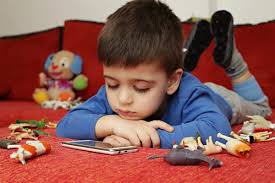The burn out syndrome in a gifted child has been discussed on the internet for some time, but it has recently gained traction on TikTok. Suppose you see “gifted child burnout” videos on TikTok, which feel all too relevant. In that case, it might signify that you must take a step back and assess how your education affects your self-esteem and wellness.
Perfectionism isn’t just a catchphrase. It may harm your mental health. But there are tools you can use at first to help you separate your sense of who you are from your successes. Even though the gifted child burnout posts make me feel better about my situation, and I’ve laughed at more than one of them, I often have to remind myself that humor is a great way to deal with challenging problems, but burnout isn’t a joke.
When I laugh a bit too much, I’m reminded that I still have work to do to take my well-being seriously. My social media feeds are full of posts from former “gifted kids” who are upset about how bad they think the label made them feel.
Whether it’s someone my age filming themselves lying in bed all day to the famous “I can’t talk right now, I’m doing sad gifted kid burnout shit” audio or a tweet expressing someone’s frustration with their inability to stick with new hobbies they’re not immediately good at, people have a lot to say about the long-term effects of early gifted education, and none of it is good.
Gifted children face social and emotional problems, such as anxiety, depression, and an unhealthy desire to be perfect.
This is a common theme of gifted child burnout syndrome, along with feelings of always falling short, trouble sleeping, and worries about time management and putting things off.

What Is a Gifted Child Burnout?
The phrase “Gifted Child Burnout” is not a medical illness; it was coined by some individuals, mainly kids, on the internet years ago. “Gifted child burnout” implies the tension and worries experienced due to their previous academic achievements or just how they were raised at school.
However, this distinction fades with the idea of “talented kid burnout.” Consider my narrative. I never knew I was gifted. I linked to them. Even though I know how often people tell me how talented I am, I started to believe these compliments over time because I was used to hearing them. Not until I went to college did I discover that I was just like everyone else.
What Are The Signs Of Burn Out In A Gifted Child?
The gifted child’s burn out syndrome affects many children and often makes them tired in school and in their social lives. It’s essential to understand the typical habits of talented children so that you can aid your child if they face burnout in the future.
The signs of burnout syndrome in a gifted child include:
Refusing to go to school
The capacity to grasp thoughts or ideas beyond their grade level
Apathy about having to perform in school or athletics when they used to love it
Anxiety and perfectionism
Having difficulty focusing
Procrastinating or avoiding school or sporting activities
Headaches, nausea, insomnia, and panic attacks are physical symptoms.
Withdrawing from friends and relatives
Less learning zeal and curiosity
Early emotional maturity
Difficulty in maintaining academic workload
Vocabulary issues
Stress and depression
Lose excellent observation focus

What Are The Causes Of Burn Out In Gifted Children?
Here are some causes of burn out that make talented youngsters suffer difficulties.
1. Mental health
Notwithstanding awareness campaigns, the stigma associated with numerous mental health problems and disorders persists. It is critical to recognize that anxiety and depression are severe disorders that require adequate treatment and medical attention.
Whatever these folks are going through is understandable, especially when things have become so overwhelming, nearly unmanageable. Anxiety may emerge in a variety of ways in gifted children.
Because of their excessive penchant for perfectionism, most talented children have become scared of failure, resulting in high and unreasonable expectations for themselves.
Gifted children are susceptible, so any remark, even constructive criticism, can become a significant problem for them, leading them to assume something is wrong with their work.
2. Social pressure norms
A gifted need child could have social peer pressure through operant conditioning. This kind of learning is where punishment and rewards are used to check behavior.
When children perform well in school, they are awarded accolades they will always look forward to if they perform even better.

3. Competitiveness and our educational system
The competitiveness of our educational system’s programs demands cognitively rigorous admissions tests. Thus, completing them validates the child’s intelligence or giftedness. When intelligent kids compete in different academic programs at school, most people think they have a sense of being better than others.
Healthy competition helps to sharpen and push everyone to accomplish their best. However, our educational system today prioritizes grades over genuine learning.
4. The hustle culture
An excellent employee works above his or her scheduled hours. A person is regarded as a good employee only if he works above his scheduled time and isn’t rewarded for it. When a child goes above, and beyond what is expected of him, we value and applaud him more.
This “hustle culture” promotes the notion that working excessively is something to be cultivated. This may indirectly cause a gifted child to develop a burn out syndrome, which the child’s overwork may cause. Some of these kids are burned out, yet continue working relentlessly to achieve excellence.
Imagine that your gifted child has trouble with social and emotional problems like anxiety, depression, and harmful perfectionism, as well as feelings of always falling short, trouble sleeping, and trouble keeping track of time and not putting things off. What do you think will happen to the child?
Here are some ideas to consider and freely debate to understand why the brilliant children burnout phenomenon is more than simply a joke on the internet.

How To Help Prevent Burn Out In Gifted Children
The aim of preventing burn out in gifted children isn’t to cut down on the number of gifted kids worldwide who have burnout syndrome. Your support as the parent of a gifted child is critical. It’s easy to fall into the trap of continuously pushing your children to be their best because you know they’re capable. However, this eventually leads to fatigue and adults who need help figuring out what to do when they make errors.
Modeling good balance and enabling your children to try new things will have long-term benefits. (I say this as an adult who couldn’t be a child for long due to trauma and talented kid burnout, which is why I’m talking about it!)To begin, be careful to establish reasonable expectations for your talented child.
Know what they can do and be ready to help them manage their time well. Remember that even if they are competent, they still need to perform to the utmost degree of their abilities. That must be exhausting!
The discussion of the “gifted kid burnout” phenomenon is more than just a trend. We must consider it a concern to take mental health precautions. It is time to break these norms that imprison our individuality.
When you know a gifted child who developed burn out syndrome, start a conversation. It means a lot to them. Encourage them that they can be anything they want to be based on their potential and not rely on what other people tell them to be.
Read our article on parenting a gifted child here.
Parents should introduce them to different social groups so they can learn about the world outside of home and school. Do not put them in a box; instead, provide them with more opportunities to explore the vast world around them.
Lastly, if you see any trouble or social-emotional struggles these people are trying to battle, encourage them to seek professional support for their needs. For those former gifted kids out there, I believe we will all get out of this abyss. It would take us a lot of courage and energy to free ourselves from all the tiredness and emptiness we are feeling, but eventually, we’ll get there.

More Ways To Help a Child Out Of Burn Out Syndrome Are:
There are more ways parents can help a gifted child out of burn out syndrome. They are as follows:
1. allowing every gifted youngster the chance to be their actual selves and
2. providing them with comfortable channels to express their true selves.
3. Encourage them to do what they enjoy doing.
4. Parents should allow the gifted kids to enjoy their gifts without undue pressure
5. Breaking the qualities and standards that captivate children’s uniqueness.
6. Encouraging kids to be anything they desire depending on their potential and relying on their parents’ opinions.
7. Introducing them to diverse social structures and activities
8. Assisting them in adjusting to life outside their family and school.
9. Instead of confining them in a box, give them more opportunities to explore the big world around them.
Conclusion
In conclusion, burn out syndrome can happen to a gifted child in school or later in life. He may need help keeping up with the high academic expectations placed on him. He may also work to balance his intellectual ability and other aspects of life, especially as an adult.
Secondly, ensure that your gifted child gets enough rest. Suppose your kid has ADHD or is autistic. In that case, they may not notice their body cues for taking breaks and may hyper-focus on anything without pausing. A gifted child may have to burn out syndrome if pushed to their limits and asked to do more than their peers. This could result in depression and other mental health issues. Gifted youngsters need assistance balancing their workload and their well-being.
Be a helpful presence for your brilliant kid. Make your kids aware that you will be there for them on any issues of concern. As a parent, you must know the symptoms of gifted child burnout. If you see any of this syndrome in your child, don’t hesitate to get treatment.
Finally, urge them to seek professional help, as most experience social-emotional difficulties. You will all come out of this mess with strength and energy to liberate yourself from all the exhaustion and emptiness you are experiencing, but you will get there eventually. For the time being, hang in there and remember that there is always someone, such as God, who understands and believes in you.
Read more of our articles here: https://abundanceandkiddies.com/
Shop your kid’s Sweaters & Winter clothes here

Pingback: Narcissism In Children: The Review You Need To Know - PARENTING